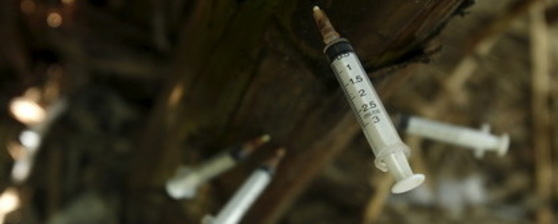I've been studying drug policy and advocating for drug policy reform for years now, so I didn't expect to be so unprepared when asked: "What do we tell our kids about drugs?"
This question prompted me to put serious thought to the issue and try to come up with a comprehensive answer. The slightly vague short answer is "the truth", but that is to ignore the vast emotional complexity of the issue. Our children are intelligent and complex individuals that absorb a vast amount of data which defines their personalities through various social interactions, peers, and family networks.
As parents, we need to respect our children's intelligence and trust them to make sensible decisions when armed with the right knowledge and information – to reduce the potential harm to themselves or other peers in their social experiences. By the age of ten, many children will know what drugs are, where to get them, what they look like and most of all which ones are legal and illegal!
Unfortunately, having to explain this legal difference to our kids detracts from the important educational message that we should be giving them.
In truth, what is really needed are nationwide drug education programmes focused primarily on parents and young adults, teaching them the facts about the most prevalent drugs used in our society, and the real risk factors posed by different substances. Without a doubt, two dangerous and potentially dependency-forming drugs are also ones that our children regularly come into contact with, because we have somehow educated ourselves to believe that these drugs are safe because they’re legal.
Alcohol and tobacco are obviously the examples highlighted, and the confusion caused by this misleading assumption is undoubtedly a factor in the thousands of associated deaths that take place every year. I won't vilify these legal substances or those who use them; I’d rather like to focus on one of them as a good example for future policy making.
Cigarette consumption has been plummeting in many Western countries over the past decade – particularly among young people. This is primarily thanks to accurate awareness campaigns about the health risks, bans on advertising, strict rules on product displays, and indoor consumption bans. In turn, this is having a real effect in reducing tobacco-related illnesses. A similar approach should be taken in respect of other drugs, including alcohol.

Many countries now include health warnings on cigarette packets
So, what do we tell our kids?
The most important thing we can do is to teach our kids how their body and brain develop as they grow up. It’s important that they understand that our brain develops vigorously until around the age of 18, and doesn’t finish doing so for several years after that. During this period, young people develop important characteristics like healthy emotional well-being and empathy in social situations, while simultaneously dealing with confusing chemical imbalances resulting from puberty.
In truth, young people should avoid most stimulants and intoxicants during this period in their development. Even caffeine, one of the most acceptable stimulants can be particularly dependency-forming and harmful for children.
We should teach our kids to always ask when curious, and to never touch things before understanding what they are. As they become older, they will be faced with the same kinds of situations, questions, and offerings in their social circles as we did in our youth, and – as parents – it is our responsibility to educate them sufficiently to protect themselves.
For parents, this means always making yourself approachable to your child no matter how big or small their problems may be, and to encourage them to ask you for advice if they are ever offered – or considering to take – something new. It’s important for us as parents to be sufficiently educated so that we can teach them the difference between substances, the importance of harm reduction, and what we might class as safer alternatives, or safer forms of consumption.
We can only be effective parents when our children trust us. The best and only way to reach our children is by telling them the truth as they need to hear it. This is what I will tell my children and I’ll be sure to tell them: "Thanks for asking the question!"
* Stíofán Caomhanach is a Researcher and Activist, and the Founder of Legalise Cannabis Ireland


